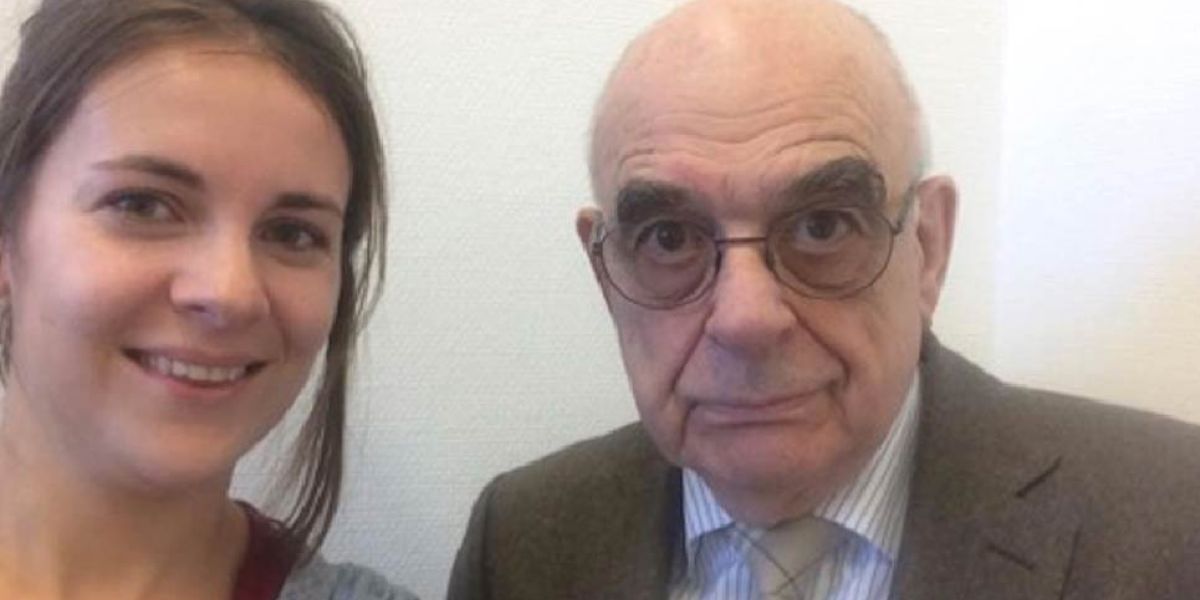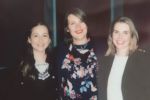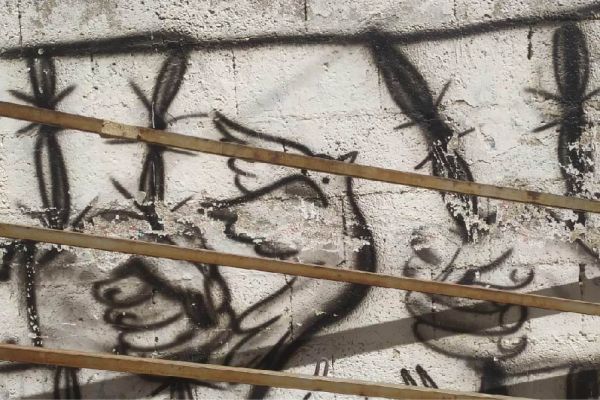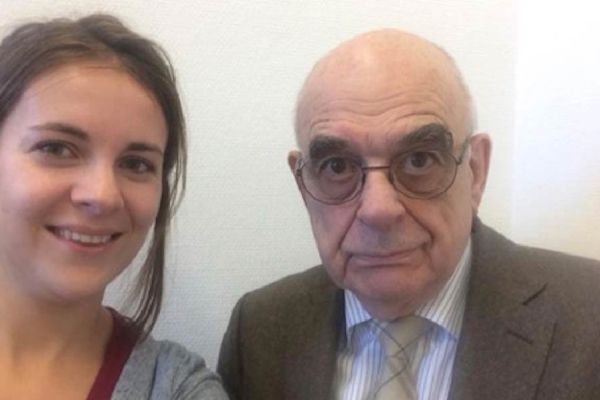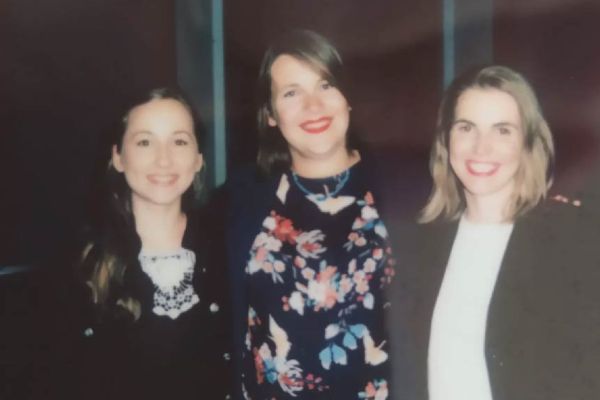As a researcher work can sometimes be lonely. You become so specialised on a certain topic that there may not be that many others who completely understand the content of your work, at least not in your immediate environment. Some researchers work alone, others work in teams. For those working in teams their teammates may be in a position of leadership over them or sometimes even their competition (for example if there is one grant available which all are developing proposals for). You may have very intense experiences when doing field work that are not easily shared with colleagues who have not done similar work. For all these reasons, I find that finding good mentors and maintaining a regular relationship with them is crucial.
Throughout my career so far, I have been lucky to encounter numerous mentors who have offered great support and wisdom. Among them are Monica Meijsing, Rianne Letschert, René de Groot, and Hildegard Schneider. These are the people who have coached me through academic confusion, moral dilemmas, stresses, successes, and failures. Today, I want to highlight one person in particular, my oldest mentor (in terms of the duration of mentorship - but probably also in age!). Namely: Jan Pronk. I want to tell you how I met this mentor, how our relationship developed, how we organise the mentorship, and share some tips for successful mentorship. I hope that this will be an inspiration to others, an encouragement to invest time into finding good mentors and to be a mentor to others.
My mentor: Jan Pronk
Within the Netherlands, as well as among those specialised in international politics and development, Jan Pronk (1940) is quite famous. In the Netherlands, he is known as a prominent politician, former minister of development co-operation (twice) and a key voice in political debate. He is also known for being a strongminded and opinionated idealist, who has a strong political interest in protecting human rights and advocating for justice for the most vulnerable in society. At the international level, he is known for his political work, including at the United Nations (e.g. as head of the United Nations Peace Mission in Sudan from 2004-2006), and his scientific work as a professor of Theory and Practice of International Development.
How did we meet?
In 2013, as a MA student in philosophy, I wanted to do research on child soldiers in Rwanda. Someone who knew about my project said that I should try to get in touch with Pronk, because of his active involvement in Rwandan politics. I emailed Pronk (after googling his email address) and was surprised to receive a reply. He said that we could meet and invited me to a public lecture he was doing for Amnesty International.
I attended the lecture with a friend. Afterwards, there was quite a line of people wanting to speak to Pronk. Being a bit shy, I was waiting around for the line to clear away. When I finally found the courage to approach him, he was already on his way out. It turned out he was in a rush to catch a train, but he invited me and my friend to walk with him to the station. So, while speed walking through the streets of Amsterdam, I was subjected to a kind of job interview. What did I know about Rwanda? Why did I want to do research there? What did I want his help for? What were my ambitions? Somehow, although I didn’t know much about Rwanda, or what I was doing, I passed the test. Since then, and for the many years since, Jan Pronk has been one of my most valuable mentors.
What does this mentorship look like?
Obviously, a mentor-student relationship is different from case to case. You and your mentor have to work out what works best for you. In our case, we meet once or twice per year. The reason to meet is usually a concrete question from my side. This can be academic (e.g. feedback on a draft article), experience related (I need to talk about my recent experience with the Sahrawi refugees), or personal (I’m not sure what to do next, career-wise). Usually, I collect a few questions or issues that I am struggling with and bring them all to the discussion. I also usually send some questions before our meeting so that he has time to think them over and, if relevant, I may send some material.
In between meetings we are in touch over email. If I have a short yet urgent question, I sometimes send an email or call. Sometimes Pronk emails me to share information, for example about a publication I should read or an event that I should attend. When I get stuck while in the field (and I usually get stuck once or twice during field research), Pronk is one of the first people I call for advice and pep talk. He has also been very helpful in publicly supporting my work, for example through writing me recommendation letters.
When we meet, there’s always good advice, accompanied by great anecdotes. For example, during our last visit we discussed my new blog category “personal reflections on research” and this blog on mentorship. Pronk warned me to be careful about what you write and how it may be taken out of context and used against you. As it turns out, he was once expelled from Sudan by the Sudanese government, where he was present as UN special envoy, based on some remarks made in his blog.
(For those who are interested, I highly recommend reading his blogs from Sudan, starting with the last one, here.
Tips for a successful mentorship relation
Based on my experience being mentored by several amazing people, I can share the following tips for anyone looking for a mentor:
- Don’t be afraid to reach out. When you meet, or even read about someone whom you feel you could learn a lot from, don’t be afraid to get in touch with them and ask for a meeting – provided you have a concrete question or proposal. At worst, they are flattered but have no time (if they don’t reply, you can assume this is the case). Don’t take it personally. At best, you start a great mentorship relation.
- Value their time. They are helping you and your project, and you don’t really have much to offer in exchange. The least you can do is value their time highly – treat their hours like they’re gold. Don’t send them 1000-page documents to read without any direction. When you send documents, indicate which section you particularly would like to discuss or questions you may have. Be on time for appointments (I once forgot about a meeting with Pronk – he was not happy!). Prepare your meetings. Think about what you want to discuss, and how they may help you.
- Meet in person. Where possible, meet in person. Travel to see them. It shows you value the mentorship and their input. In-person conversations, in my experience, lead to more interesting working relationships than online conversations. Learning from your mentor is not something you do in between other business. It’s something you take time for.
- Share personal information. Don’t be afraid to share personal information, even about your private life, especially insofar as it is relevant to your research work. Your mentor usually has a lot more experience. I have personally benefitted greatly from valuable advice about, for example, how to balance my ambitions with being a parent. Aside from advice, it can be very comforting to hear how someone whom you admire may have struggled with similar issues in the past and learn how they dealt with it.
- Formalisation: Generally, I don’t think it is necessary to formalise a mentoring relationship. For me it has always evolved naturally. There has to be a certain connection between two people, and both should enjoy discussing certain topics together. The only exception in my experience has been when I needed official PhD supervisors, and when applying for another grant, we needed to include a kind of advisory committee.

July 2022: Visiting Jan and Tineke Pronk at their home. Marieke visited with her two children and husband.
A commentary by Jan Pronk
I feel very honored to be mentioned as an example, in this reflection on mentorship. I do not think that I deserve the praise, but I certainly appreciate these words.
Marieke is not the only one who regularly visits me over a longer period. Others are Anoek Nuijens, a theater maker, and philosopher Ellen Mangnus, who is currently writing a book about my views on development, politics and international relations. Others visit every now and again, such as former employees and students. Everyone is younger than me, many are much younger. I learn a lot from these visitors, particularly from those who visit more regularly. It helps me to stay up to date regarding new views and new developments. It sharpens my own thoughts, so that I do not find myself stuck in past views. Not that I worry that this would happen either way, because I always continue my studies – but these conversations are valuable contributions.
From you, Marieke, I have learned a lot: a different (participatory) view on children’s rights, your fresh perspective regarding things that went wrong in Rwanda, your views regarding the so-called homeschooling in the Netherlands, your impressions in the Central African Republic, Cyprus and the Western Sahara, and your approach to finding funding. I admire your perseverance.
What I mean to say, in short: mentorship is a two-way street.
